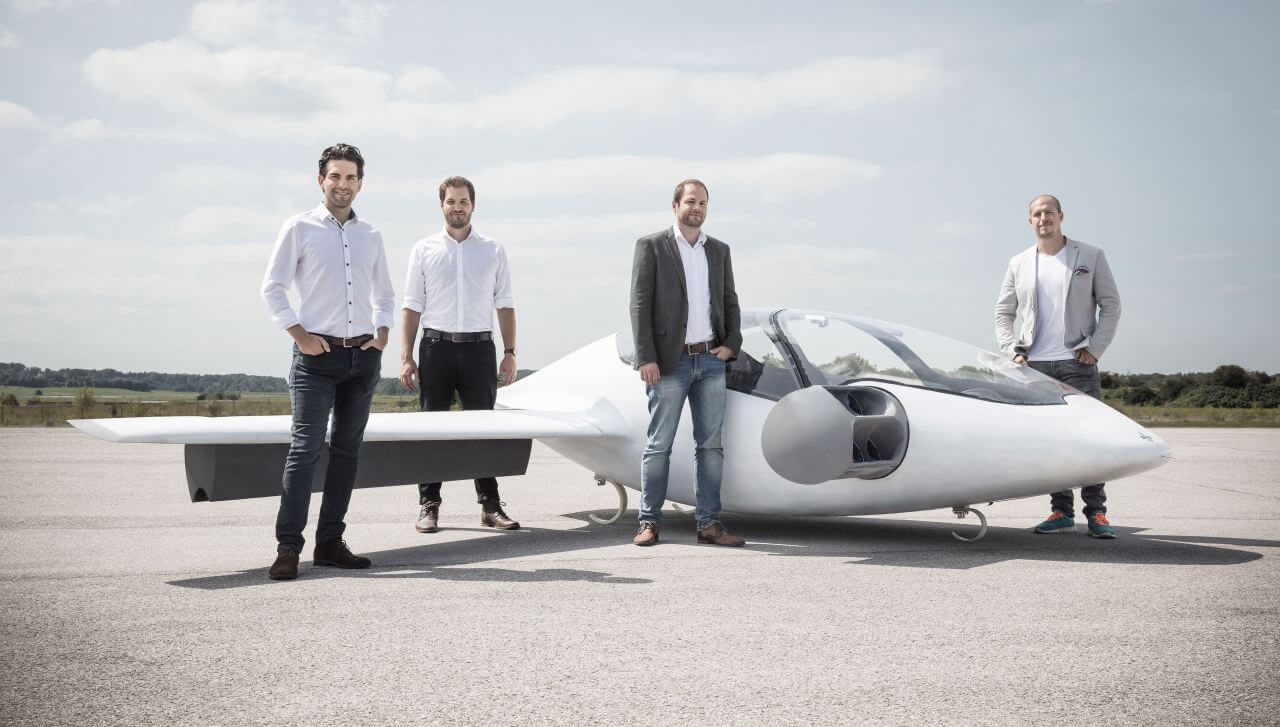Back in April, Munich-based startup Lilium (then called Lilium Aviation) unveiled its vertical take-off and landing (VTOL) prototype flying taxi. Now, the German firm has advanced its plans after it closed $90 million in Series B funding.
Lilium was founded in 2014 by four entrepreneurs who wanted to launch an 'Uber for the Skies' within a decade. Its small, five-seater lithium-ion-powered electric jets could transport people around crowded cities cleanly and without requiring runways; instead of using long strips of land, they'll land and take-off at designated rooftop terminals.
The latest round of funding means Lilium has now raised over $100 million from backers that include Tencent, billionaire Twitter co-founder Ev Williams' Obvious Ventures, and private banking and asset management firm LGT.
During the maiden test flight back in April, the two-seater prototype - using the force from 36 electric jets mounted on its 10-meter wings via 12 movable flaps - traveled vertically up into the skies, at which point the jets provided forward thrust by tilting horizontally. The plan is for the final design to reach speeds of 187 mph and run for an hour on a single charge.
In a statement regarding the latest investment round, Lilium cofounder and CEO Daniel Wiegand said: "This is the next stage in our rapid evolution from an idea to the production of a commercially successful aircraft that will revolutionize the way we travel in and around the world's cities."
There's still no word on how much a trip in one of the aircraft might cost, but an Uber-style app is already in development.

After being the stuff of sci-fi movies and TV shows for many years, there's been a sudden increase in the number of companies developing flying cars or similar vehicles. Slovakian flying car startup AeroMobil revealed its vehicle in the same week as Lilium; plane/car hybrid manufacturer Terrafugia was recently bought by Volvo parent Geely; and other craft from Airbus, the Cartivator Group, PAL-V, Ehang, and Larry Page-backed startup Kitty Hawk have been proposed or are in various stages of development.
